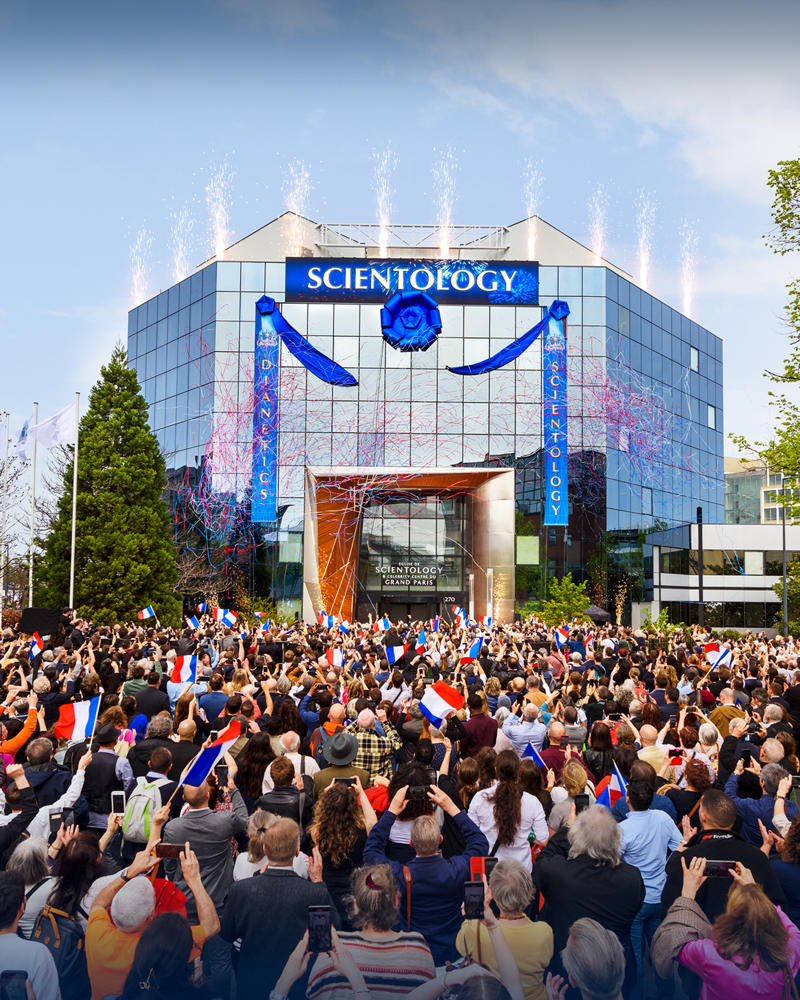Scientology Explained: Key Concepts and Trainings Revealed
Scientology Explained: Key Concepts and Trainings Revealed
Blog Article
Unmasking Misconceptions: Dividing Truth From Fiction About Scientology

Beginnings of Scientology
The beginnings of Scientology trace back to the mid-20th century when L. Ron Hubbard, a sci-fi writer, started the belief system in the 1950s. Hubbard's advancement of Scientology stemmed from his earlier self-help system called Dianetics, which he presented in the 1940s - Scientology. The change from Dianetics to Scientology noted a shift towards a more extensive spiritual philosophy that included facets of psychology, Eastern spiritual traditions, and Hubbard's very own theories on human existence
Hubbard's expedition into the human mind and spirit brought about the production of Scientology as a religious beliefs centered around the idea of spiritual enlightenment and self-improvement via a process called auditing. Auditing, a kind of spiritual counseling, intends to assist people get over psychological and psychological barriers, understood as engrams, that hinder personal development and understanding.
As Hubbard's teachings obtained appeal, Scientology progressed into a global motion with a considerable following. In spite of objections and debates bordering its methods and beliefs, Scientology remains to attract followers looking for spiritual gratification and individual development.
Core Ideas and Practices

An additional essential aspect of Scientology is the concept of the Thetan, the spiritual essence of an individual that goes beyond the physique. Followers aim to understand and strengthen their link to the Thetan via different techniques such as research study courses and purification routines.
The Church of Scientology likewise puts a strong focus on the significance of personal duty and the idea that individuals have the power to shape their own fates. With adherence to honest guidelines and the pursuit of self-improvement, practitioners of Scientology make every effort to achieve higher degrees of joy, success, and spiritual fulfillment.
Conflicts and Criticisms
Among Scientology's core beliefs and methods exists a landscape noted by conflicts and objections that have stimulated intense argument and analysis. Among the significant criticisms leveled against Scientology is its deceptive nature and the supposed exploitation of its participants. If they attempt to leave, former participants have actually talked out about sensation pressured to donate large sums of money to the Church and encountering severe repercussions. Additionally, Scientology's standing as a tax-exempt spiritual company in some nations has actually been a factor of opinion, with critics saying that its methods are a lot more comparable to a service than a faith. Scientology.
Another area of dispute borders the Church's therapy of critics and skeptics. Records have actually emerged of harassment, scare tactics, and lawful hazards routed at those that speak out against Scientology. This has raised concerns regarding freedom of speech and the company's dedication to openness and responsibility.
While Scientology has actually vehemently rejected a number of these claims, the objections and controversies surrounding the Church remain to sustain public apprehension and scrutiny.
Scientology's Impact in Culture
With its visibility in different industries of society, Scientology's influence can be observed in both obvious and subtle means, shaping interactions and assumptions. In the realm of education, the Church of Scientology has dealt look at this website with analysis for its efforts to introduce its teachings right into colleges through programs like "Applied Scholastics." Movie critics suggest that such efforts blur the lines between church and state, possibly impacting the educational experiences of trainees. Additionally, Scientology's influence reaches the world of psychological wellness, where its sights on psychiatry and psychology have actually stimulated arguments within the clinical neighborhood. The church's anti-psychiatry position has actually led to suspicion and issues concerning the effectiveness of mental wellness treatments. In the world of home entertainment, Scientology's association with prominent stars has actually brought attention to the religious beliefs, both favorably and negatively. The participation of famous figures in Scientology has, sometimes, served to promote the religion, while in others, it has actually attracted criticism and questioned about the church's methods and beliefs.
Debunking Common Misconceptions
What misconceptions concerning Scientology are frequently held and exactly how can they be disproved? One typical misconception about Scientology is that it is a cult. Nevertheless, the Church of Scientology is legitimately recognized as a religion in numerous nations, consisting of the United States, where it has tax-exempt condition. Like various other religious beliefs, Scientology offers spiritual support and techniques for its participants.
Another misconception is that Scientology compels its participants to cut connections with their families. In truth, the church highlights the relevance of family relationships and encourages members to maintain healthy links with their loved ones.

Verdict
To conclude, it is essential to separate reality from fiction this contact form when reviewing Scientology. By analyzing its beginnings, core ideas, controversies, and impact in society, we can unmask common misunderstandings bordering this religion. It is vital to come close to the subject with a unbiased and essential attitude in order to recognize Scientology precisely and without prejudice.
Rooted in a structure of spiritual knowledge and personal growth, Scientology's core beliefs and methods incorporate a diverse variety of concepts web link and rituals. Central to Scientology is the belief that humans are never-ceasing spiritual beings who have neglected their real nature. The participation of famous numbers in Scientology has, in some situations, offered to promote the religion, while in others, it has actually drawn criticism and increased inquiries about the church's techniques and beliefs.
The Church of Scientology is legally recognized as a religion in numerous nations, including the United States, where it has tax-exempt status. Like various other religious beliefs, Scientology offers spiritual support and methods for its members.
Report this page